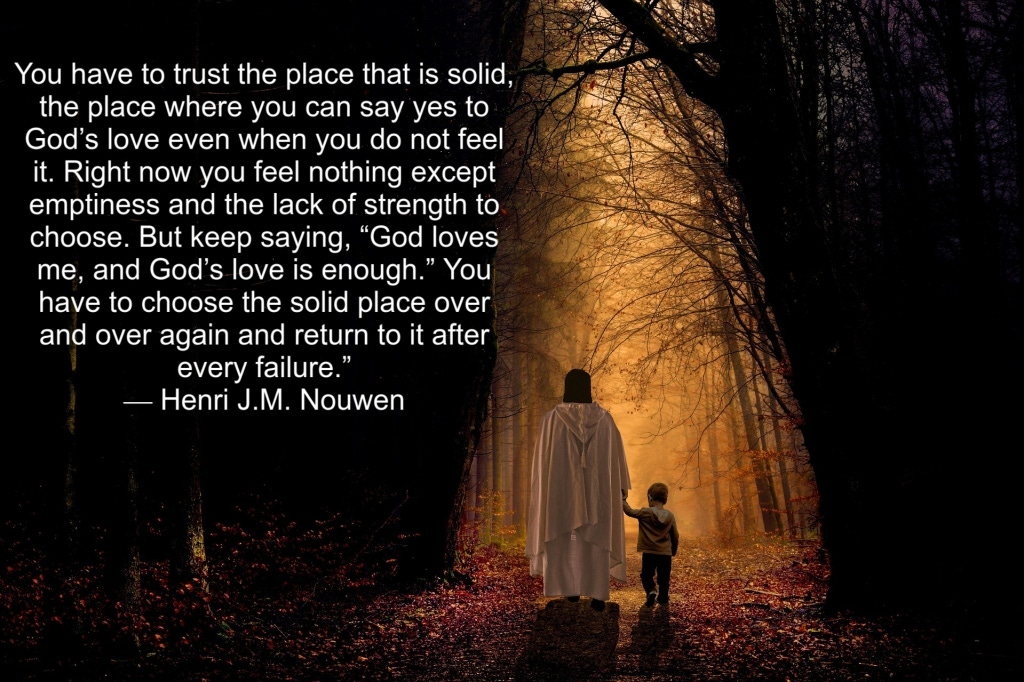A Sermon Preached a Thousand Times
Thank you to Megan Westra for the summer book study on Henri J.M Nouwen’s, The Inner Voice of Love. For the next few weeks I will be sharing my reflections based on the reading.
One of my roommates once told me “Pastors often preach the same sermon but in different ways.” Now I am not a pastor but that line stuck with me. If I were a pastor what theological theme would dominate my sermons? What message would I deliver in a million different ways? As I was pondering that question, I decided to look over my blog since my posts are the closest things to sermons that I have.
It soon became abundantly clear: the theme that I keep touching on in post after post is the radical inclusivity of God’s love. I want people to know that God love them, period. No, “God loves you but… you need to change your sexual orientation or gender identity.” No “God loves you but you need to dress a certain way or affirm the following list of beliefs.” No, “God loves you but will send you to hell for an eternity because you don’t have the correct theology or religious belief.” I want people to know that God loves us all without stipulations.
I focus on the expansiveness of God’s love for two main reasons. One reason is because I want to push back against the narrow, limited, depictions of God’s love presented by some forms of Christianity. The God of fundamentalist evangelical Christianity is not a God of love. This god is often egotistical and cruel. This god claims to love everyone but this love comes with numerous stipulations: “Yes God loves you, but you deserve to spend an eternity in hellfire for being a sinner. Also, if you are LGBTQ+ you need to deny your orientation and gender identity. Also, God loves all of humanity but only gave the truth of Christianity to a relatively portion of humanity, and everyone else both those who died before Christ walked on earth and those in the present day who refuse to accept Jesus as their savior, are being tortured in hell.”
I spent years grappling with the limited love that this God provided humanity. So, when I discovered in college and in seminary that there were different ways of portraying God, I felt free. No longer did I need to agonize over whether me and my loved ones would go to hell. I no longer needed to wonder if my bisexuality was an abomination. I no longer needed to try and “convert” people to my way of thinking. God’s love is limitless. And that is freeing.
Another reason why I focus so much on God’s love is, because in my life, God’s love has served as a solid foundation. As someone who struggles with depression and who often feels as if I am inherently unlovable because I am too difficult, to opinionated, too stubborn, God’s love has been an anchoring force in my life. It has helped me survive my darkest moments. Of course, God’s love isn’t an excuse for me to avoid doing the hard work of improving. I still need to work on my temper and on listening to other people’s perspectives. But God’s love doesn’t depend on whether or not I ever become the kindest, nicest, most compassionate person. God’s love inspires me to improve myself but God’s love is not dependent on my actions.
I know so many people struggle with believing they are worthy of love. And my purpose with my writing is to point people to what Nouwen describes as the “solid place.” Nouwen encourages readers to always turn back to God’s love. When we feel unworthy remember that God loves us. When our world is falling apart, God’s love for us remains firm. When other people leave for whatever reason, God will still be with us.
God’s love also fuels me to advocate for justice. If I truly believe that God loves everyone than how can I not advocate for Black, Native, and trans lives? If I preach a loving God than how can I not insist on universal healthcare and on providing a safety net for the poor? If God loves includes everyone, then how can I not protest Islamophobia?
So yes, I’ll keep writing on the same theme in a million ways: God loves all.



